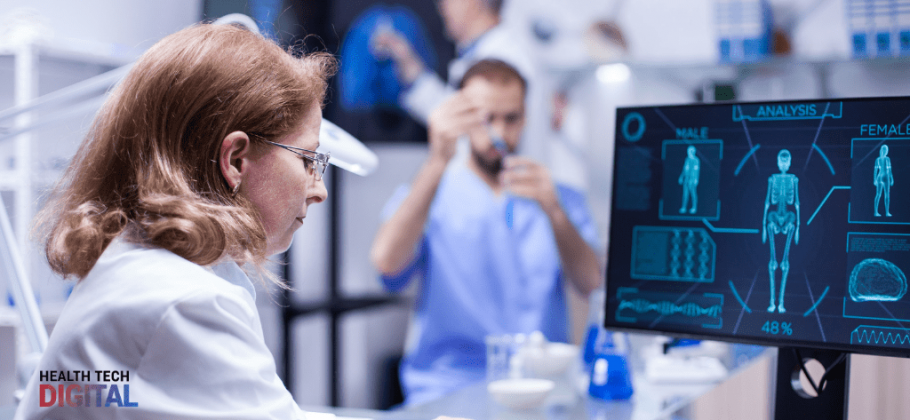The power of artificial intelligence (AI) will be used by a new National Artificial Intelligence Lab to improve the health of patients.
The industry’s best academics will be used by the AI lab, along with technology and specialist companies to work on health and care. This will include new dementia treatments, cancer detection and more personalised care for patients.
AI is already being used in certain hospitals to successfully predict cancer survival rates and minimising the amount of missed appointments.
The AI Lab’s work could make remarkable advances in health care:
- Cancer screening can be improved by speeding up the test results, which include brain scans, mammograms, heart monitoring and eye scans.
- Routine admin can be automated so that clinicians will have more time that can be spent on patients.
- The NHS workforce’s skills can be improved so that they are trained in using the AI systems for daily tasks.
- Systems can be built to help detect when people are at risk of complication post-op. Infections and follow-up appointments with clinicians can be detected early which will reduce readmission rates and improve patient safety.
- Predictive models can be used to accurately estimate future need of drugs, beds, surgeries or devices.
- Patients that are most at risk of diseases like dementia and heart disease can be identified sooner, helping them get treatment closer to home and alleviate pressure on the NHS,
- AI safety can be improved by inspecting algorithms already utilised by the NHS. This will make systems fairer, increase the standards of AI safety and ensure patient confidentiality is securely protected.
The NHSX will house the Lab, and with the help of the Accelerated Access Collaborative, they will oversee the digitisation of the health and care system.
The NHS Long Term Plan will be supported by the investment of £250 million, and includes pledges to use AI that will help clinicians eliminated variations in health care.
Commenting on new pledges around artificial intelligence in the NHS, Chris Scarisbrick at NHS diagnostic technology provider Sectra, said: “The government’s £250m pledge for artificial intelligence in the NHS, and the announcement of a new national artificial intelligence laboratory, has the potential to be great news in enhancing the ability to diagnose serious illnesses.
Though it certainly cannot replace radiologists and other NHS diagnostic professionals, AI can have a big impact on helping the health service’s increasingly pressured diagnostic services. But, whilst new money in this arena is good, AI will only work if we have the right leadership.
Other industries are already recruiting chief AI officers. Now is the perfect opportunity for NHS organisations to do the same – or to go one step further and create the role of chief clinical AI officers.
The NHS needs people with the authority to drive AI applications into clinical settings where they are accepted, where they can make a difference to patient outcomes and working lives, and where they can meet organisational, regional and national needs.”
The Prime Minister said: “The NHS is revered for the world-class care it provides every day – a treasured institution that showcases the very best of Britain.
But it is also leading the way in harnessing new technology to treat and prevent, from earlier cancer detection to spotting the deadly signs of dementia.
Today’s funding is not just about the future of care though. It will also boost the frontline by automating admin tasks and freeing up staff to care for patients.
My task is to ensure the NHS has the funding it needs to make a real difference to the lives of staff and patients. Transforming care through artificial intelligence is a perfect illustration of that”.
Health Secretary Matt Hancock said:”We are on the cusp of a huge health tech revolution that could transform patient experience by making the NHS a truly predictive, preventive and personalised health and care service.
I am determined to bring the benefits of technology to patients and staff, so the impact of our NHS Long Term Plan and this immediate, multimillion pound cash injection are felt by all. It’s part of our mission to make the NHS the best it can be.
The experts tell us that because of our NHS and our tech talent, the UK could be the world leader in these advances in healthcare, so I’m determined to give the NHS the chance to be the world leader in saving lives through artificial intelligence and genomics”.
Simon Stevens, NHS England Chief Executive, said: “Carefully targeted AI is now ready for practical application in health services, and the investment announced today is another step in the right direction to help the NHS become a world leader in using these important technologies.
In the first instance it should help personalise NHS screening and treatments for cancer, eye disease and a range of other conditions, as well as freeing up staff time, and our new NHS AI Lab will ensure the benefits of NHS data and innovation are fully harnessed for patients in this country”.
Article source: https://www.gov.uk/government/news/health-secretary-announces-250-million-investment-in-artificial-intelligence













